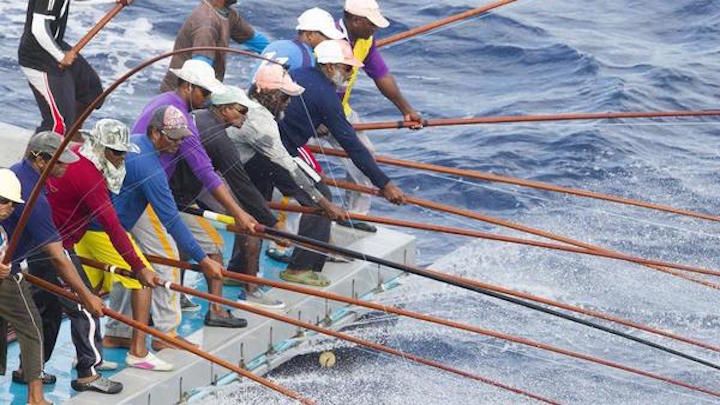Eco-label suspended for Maldives yellowfin tuna
The suspension of the Marine Stewardship Council’s eco-label was based on by an assessment of yellowfin tuna stocks by the Indian Ocean Tuna Commission’s scientific committee, which “showed significant declines as a result of overfishing and relatively low reproduction levels.”

18 Apr 2016, 09:00
The Marine Stewardship Council, an international non-profit organisation that certifies sustainable fisheries products, has suspended its eco-label for the yellowfin component of the Maldives pole and line skipjack and yellowfin tuna fishery.
The suspension was based on by an assessment of yellowfin tuna stocks by the Indian Ocean Tuna Commission’s scientific committee, which “showed significant declines as a result of overfishing and relatively low reproduction levels.”
Due to a substantial increase in longline, gillnet, handline and purse seine fishing by a large number of countries in the Indian Ocean, the IOTC reported that recent fishing has exceeded the ‘Maximum Sustainable Yield’ levels.
According to the MSC, a recent audit of the Maldives pole and line fishery also concluded that the stock no longer meets its requirements for stock health.
Become a member
Get full access to our archive and personalise your experience.
Already a member?
Discussion
No comments yet. Be the first to share your thoughts!
No comments yet. Be the first to join the conversation!
Join the Conversation
Sign in to share your thoughts under an alias and take part in the discussion. Independent journalism thrives on open, respectful debate — your voice matters.




